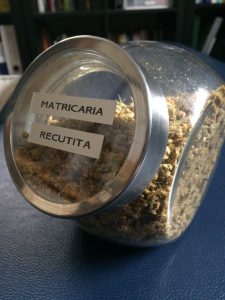 The holidays can be a very happy time, but it can also be very stressful. Many times we have such high expectations for ourselves and others, and over book and stretch ourselves thin that we are left feeling not so great. It is my hope that these tips would come to mind in those stressful moments during the holidays and help you work through them.
The holidays can be a very happy time, but it can also be very stressful. Many times we have such high expectations for ourselves and others, and over book and stretch ourselves thin that we are left feeling not so great. It is my hope that these tips would come to mind in those stressful moments during the holidays and help you work through them.
- Pace Yourself
Many times we are rushing to get so many tasks done in a certain amount of time. If you are lucky, you get all of those tasks done, but find yourself feeling physically and mentally wore out. This can even lead to pain, fatigue, depression, anxiety, and ultimately stress. To avoid this, focus on one task at a time, take your time, and take breaks. I find it easier if I make a list of everything that has to get done (this may not work for everyone), and focus on the main things that need to get accomplished. I also consider what things I could realistically not do if it is going to compromise my own care.
- Focus on what you Can Control
Let’s face it, control is such a nice thing to have. When everything works out exactly how we want and everyone says exactly what we want them to, then we are calm, cool and collected. Life seldom works like this though. What I often work on with patients is the piece of control. It is a good thing that you do not have control over everything. You have enough things on your plate, you do not need to control more things. So, focus on the things you can control, and leave the rest and let it go. An example of focusing on something you can control is, if you are stressed out, do some deep breathing and focus on your breath. You can control your breath, you can control your actions, you can control your words, and you can control your thoughts. Please note that deep breathing is not for everyone and you should consult your health care provider to get instructions on how to perform it as it may aggravate certain situations.
- Don’t Over-commit
Part of the stress of holidays can come from promising to be at certain events and promising to make more than we can really afford time-wise. Make a plan as to where you need to go, space out travelling when possible, and opt for simpler things to bring for food. If you know you are going to have to travel multiple times in one day, opt for a food item you can purchase at the store, for example a veggie tray. Another option is to offer your time or a service if making something or bringing something is too much. It is also okay to say “No”. You are not saying “No” to the task, but you are saying “No” to wearing yourself too thin.
- Self – Care
Often during this season we justify that, “If I can just make it through Christmas, then I will start eating better and exercising again”. It is best to do the self – care as per usual and make sure to incorporate it as often as possible to prevent burn out or stress. Self-care also provides an opportunity to check in with yourself and make sure you are following the rest of the tips on this list.
- Make Realistic Expectations
This is not just for yourself, but for others as well. When we keep expectations to ourselves and expect people to hold up to that expectation, we can often set them up for failure and potentially cause an argument. With this being said, I do not mean you need to simply just tell everyone that you expect a 5 course meal that only Martha Steward would approve of. What is does mean is to be realistic and to acknowledge that we are all human and trying our best. This mind set is important when considering your own to-do list as well. You are human and trying your best. Set some more realistic expectations for yourself and check in, “Why am I stressing out? Is this a realistic expectation? Is it worth the stress?”.
- Budget
As soon as I mention budget, I know that some people are rolling their eyes or running for the hills. Budget does not just mean money, but also time. Again, be realistic with your time, and budget it accordingly. In addition, financial stress is one of the biggest stressors out there; so budget for the holidays, plan for it, save for it, and stick to your budget. Discuss financial decisions as a family, and do not make outrageous purchases without discussing with your spouse if that fits with both of your expectations and plans.
- Moderation
As always, moderation is important. Too much or too little of something may not be the best thing. Moderation can dive into the areas of meals, exercise, time, and even the amount of get-togethers. With meals in particular, make sure to portion yourself and not stray too much from your normal eating patterns. If you do, you may feel less than comfortable and this can even contribute to stress. When considering exercise, consider when we discussed self – care and making sure to incorporate that time for you. For time, again pace yourself, do not over-commit and say no when necessary.
Have you benefited from reading this blog? Know someone that would benefit as well? Share, Like, Comment, or Tweet this article, and let me know what you think.
Some of the information provided above may not be appropriate for everyone, please consult with your doctor before trying any of the above. If you are interested in Naturopathic Medicine and wanting a different approach to your health care needs, contact Dr. Elisha Cook ND by calling 519-537-7058 and book your appointment today!



